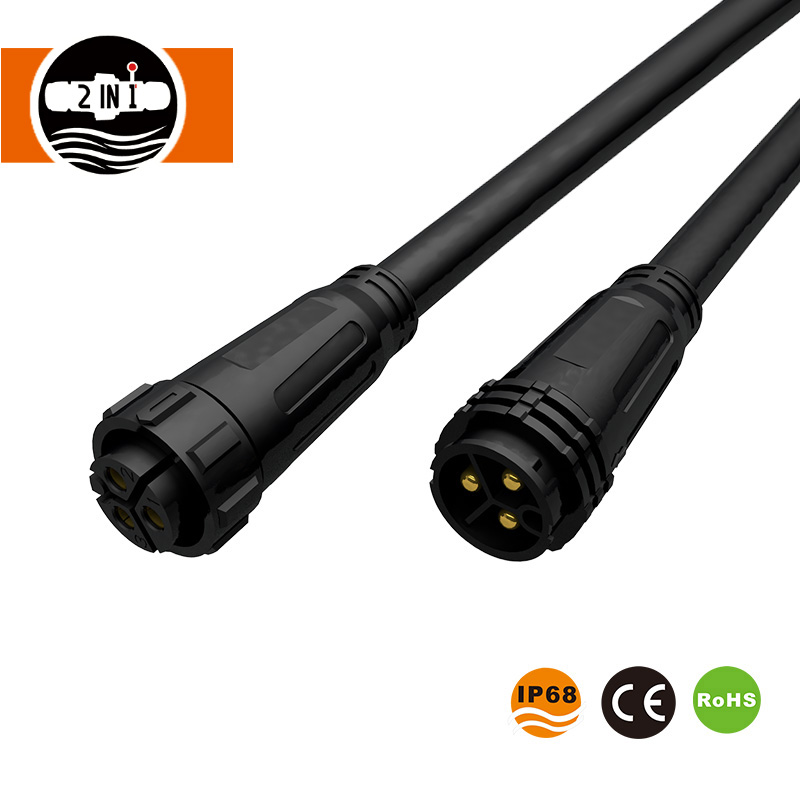Here are some key features and considerations of waterproof plug connectors
2024-03-28
Waterproof plug connectors are electrical connectors designed to provide a secure and watertight connection between electrical cables or devices in environments where exposure to water, moisture, or other harsh conditions is a concern. These connectors are commonly used in outdoor, marine, industrial, and automotive applications where protection against water ingress is essential. Here are some key features and considerations of waterproof plug connectors:
1. IP Rating: Waterproof plug connectors are often rated using the Ingress Protection (IP) rating system, which indicates their degree of protection against dust and water intrusion. The IP rating consists of two digits: the first digit represents protection against solid objects, while the second digit represents protection against liquids. For example, an IP67 rating means the connector is dust-tight and can withstand immersion in water up to 1 meter deep for 30 minutes.
2. Sealing Mechanism: Waterproof plug connectors feature a sealing mechanism, such as rubber gaskets or O-rings, that creates a tight seal between the connector components when mated. This prevents water, dust, and other contaminants from entering the connection point, ensuring reliability and safety.
3. Materials: Waterproof plug connectors are typically constructed from durable and corrosion-resistant materials such as plastic, rubber, or metal. These materials are chosen for their ability to withstand exposure to water, UV radiation, temperature fluctuations, and other environmental factors without degradation.
4. Connector Types: Waterproof plug connectors come in various types and configurations to accommodate different cable sizes, pin counts, and mating requirements. Common types include circular connectors, rectangular connectors, and modular connectors. Some connectors may also feature locking mechanisms to ensure a secure connection that remains intact even in high-vibration environments.
5. Application-Specific Features: Depending on the intended application, waterproof plug connectors may include additional features to enhance their performance and usability. These features may include strain relief to prevent cable damage, solder or crimp contacts for reliable electrical connections, and color-coding for easy identification.
6. Installation: Waterproof plug connectors are designed for easy installation and assembly, often featuring screw terminals, push-in terminals, or solder cups for connecting wires. They may also include mounting flanges or brackets for secure attachment to panels, enclosures, or other surfaces.
7. Certifications: When selecting waterproof plug connectors for use in specific applications or industries, it's important to ensure they meet relevant safety and performance standards. Look for connectors that are certified by recognized testing organizations such as UL (Underwriters Laboratories), CSA (Canadian Standards Association), or CE (Conformité Européenne).
Overall, waterproof plug connectors are essential components for ensuring reliable electrical connections in environments where moisture and water ingress pose a risk to equipment performance and safety. By choosing connectors with the appropriate IP rating, materials, and features, you can effectively protect your electrical systems from water damage and maintain operational reliability in demanding conditions.



